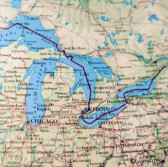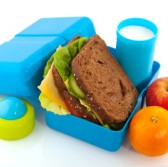
Virtual Money Fair
Please select the virtual money fair page for your desired province below. (Note: we’ll be adding every province in the coming days, so check back soon if yours isn’t listed yet)
Close this Window
Please select the virtual money fair page for your desired province below. (Note: we’ll be adding every province in the coming days, so check back soon if yours isn’t listed yet)
Close this Window

 Back to Resources
Back to Resources
 Print
Print
Subject Area: Drama
The class is told that a family has just inherited $6,000. The students will be divided into groups and each group will be given different perspectives of what the family members want to do with the inheritance. The groups will create and perform a dialogue between the family members, discussing what the family should do with the money.
Copies of the group scenarios provided, paper and pencils.
Family 1 Scenario
Family 2 Scenario
Family 3 Scenario
Family 4 Scenario
Family 5 Scenario
Related Resources
The class will talk about what they like to do in their spare time. In pairs, they will create a radio ad for an inexpensive entertainment activity, trying to convince their peers that this activity would be inexpensive and lots of fun.
Read More
Students will appreciate different points of view regarding their needs and wants. They will view how teens interact with parents and how to make choices.
Read More
The students will pretend they are a new company building a factory. They will research the pros and cons of different kinds of renewable energy on the Internet. They will choose which form of energy to use and share the reasons for their choice with the class.
Read More
Students will work on their own or in pairs to create a business of their choosing. They will name their business, create a business plan, design a logo, and advertisement as well as make a sales pitch to the class.
Read More
In this lesson, students will learn and define various financial terms to become more aware of their meaning and importance in life.
Read More
In this lesson, students will research a business of their choosing and create a 3-5 minute presentation to give to the class about their findings.
Read More
The students will be asked to examine how the functioning of an L.E.D. bulb is different from that of an incandescent bulb and how that results in both a saving of money and a reduction in energy consumption which benefits the environment.
Read More
Many students are passionate about music but they may not have enough talent to think about a possible career in the music industry.
Read More
The class will discuss the meaning of several money concepts. Then they will expand their understanding of these concepts by performing in small groups, a money song based on a familiar tune.
Read More
The class will perform a variety of scenarios about a teen who wants to buy a trendy pair of designer jeans.
Read More
The students will learn about different methods people can use to pay for their purchases or their bills – such as cash, credit cards, debit cards, store cards, cheques, and electronic funds transfers. Using a jigsaw activity, each group will research one kind of payment, considering its pros and cons. The “experts” will then share with the other jigsaw groups.
Read More
The class will discuss currencies used in countries around the world and the geographic reasons why some countries make good tourist destinations. In pairs, the students will complete a research assignment that looks at currencies and land features of countries that make it a popular place to visit. They will produce a travel brochure to share with the class.
Read More
The class will read an article about Peer Pressure, either on the internet or by using the handout provided. Then they will break into groups to discuss the potential effects of peer pressure. The period ends with a recap of what was discussed and learned about Peer Pressure.
Read More
After a discussion about how companies try to entice buyers through effective advertising, the students will be asked to create a radio ad or newspaper ad for a new product.
Read More
After a discussion about how to shop for the best deals, the students will complete a worksheet that determines the unit prices for various items. The teacher will lead a discussion by taking up the answers. The students will mark each other’s papers.
Read More
Often children spend money without regard for how much of their money and how their choices affect themselves and others. In order to be a financially responsible adult they need to develop an awareness of their spending habits and whether or not their habits need to be modified to ensure that they have proper priorities. Developing wise approaches to money now will provide them with a stable future.
Read More
After a brief class discussion about why some jobs are higher paying than others, the students will read an article called “Why Do Some People Make More Money Than Others?” Then they will complete a research assignment about possible future careers that they may be interested in pursuing.
Read More
Students will discover ways to invest money and understand the risks and rewards of each kind of investment.
Read More
Students will see the values in comparison shopping to find the best prices and save money.
Read More
The students will think about the positive and negative affects money has on society. They will discuss several money themes: e.g. working hard to earn money, wanting to be wealthy, spending money on material things, paying bills and paying taxes, etc.
Read More
The students will discuss with their families ways to save money by reducing, reusing and recycling.
Read More
The students will pretend they are a new company building a factory. They will research the pros and cons of different kinds of renewable energy on the Internet. They will choose which form of energy to use and share the reasons for their choice with the class.
Read More
In this activity, students will come up with their own personal values and determine how money relates to these values. They will also decorate a “value themed” piggy bank.
Read More
The students will look at several famous quotes about money. They will discuss the quotes in groups and share their interpretations of the money messages that are suggested in each quote.
Read More
The students will discuss the pros and cons of using a credit card.
Read More
The students will use the Internet to read about how to be a smart shopper. These articles teach teens how to spend wisely and save money. After reading and taking notes they will share what they learned with the class.
Read More
The activity involves reading and completing an Internet brochure called “A Kids Guide to Money.”
Read More
In groups, the students will brainstorm the ways that people impact the environment by using energy. They will access a program on the Internet to learn how they personally can save money by saving energy, and read some facts such as how much money the average household spends on energy.
Read More
In groups the class will look at a variety of food ads and discuss how the company is trying to convince people to buy their product.
Read More
The class will be asked to think about why families might need to make a budget and what kinds of expenses a household has monthly.
Read More
The class will learn about two early companies in Canada by reading about the start up of the North West Company and the Hudson’s Bay Company. Then they will take a quiz to see if they have the personality to be a good entrepreneur.
Read More
The students will read a variety of articles about the Great Lakes and how it affects our economy.
Read More
In pairs or on their own, students will brainstorm how to make a nutritious lunch for $3.00. They will complete a supermarket shopping list of the items they will need.
Read More
The students will play a game on the Internet called “Math at the Mall.” This real life simulation game will give the students practice solving a variety of problems.
Read More
The students will discuss the aspects of a Decision Making model.
Read More
This lesson will have the students examine strategies that advertising uses in an attempt to create a desire for a product.
Read More
Students will simulate a limited home energy audit to see where costs can be lowered as a way of learning about the costs of owning a house.
Read MoreThe students will brainstorm the factors that influence people when making a decision.
Read More
The students will discuss the differences between needs and wants in the context of early fur trade between First Nations and Europe.
Read More
After reading an article about the importance of healthy food choices the class will be divided into groups to plan a week’s menu.
Read More
Working in groups, the students will simulate the experience of establishing a farm in Canada as a way of learning about the factors that affect the pricing of commodities.
Read More
The students will create a “mind map” of the cost of running a household and present their ideas to the class.
Read More
The Talk with our Kids About Money Day program is expanding internationally. For more information, or to request the program be implemented in your country, please contact us.

By registering, educators will be able to access the resources, lesson plans for their specific province, and the Teacher’s Guide.
Let us help you make the most of the resources on the site. By sharing some basic information, you will be linked to resources that best meet your needs.

Let us help you and your family make the most of the resources on the site. By sharing some basic information, you will be linked to resources that fit the ages and interests of your children.
Note: You do not need to register to access the resources. However, we would appreciate it if you do register since we would like to have a sense of the numbers of people participating. We will also send news and info periodically to those who register.
Enter your email address. A reset link will be sent to you.


